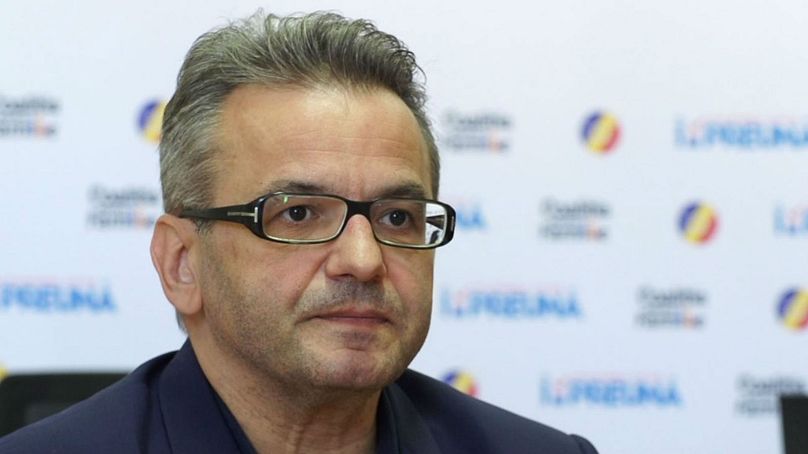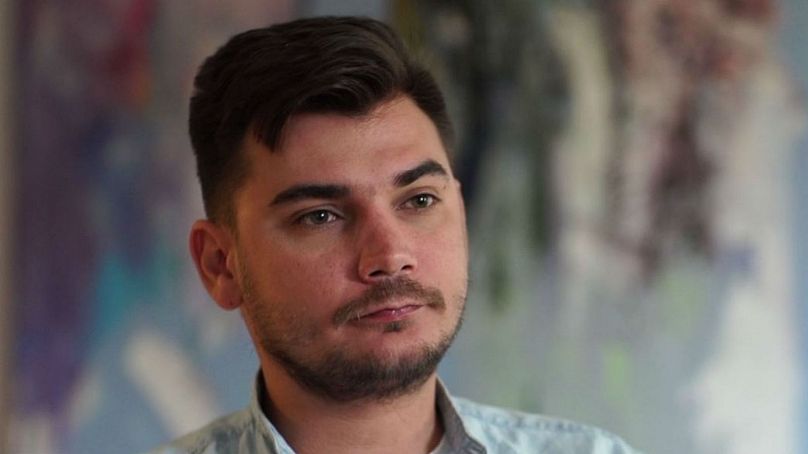Euronews took to the streets of Bucharest to ask people what they think about the vote, which could see the constitution amended to redefine marriage as being only between a man and a woman rather than “two spouses”.
Romania is set to vote this weekend in a referendum that seeks to amend the country’s constitution to redefine marriage as being only between a man and a woman rather than “two spouses”.
 ADVERTISEMENT
ADVERTISEMENT
 ADVERTISEMENT
ADVERTISEMENT
Euronews took to the streets of the capital Bucharest to ask people what they thought about the vote, and spoke to leaders on opposing sides of the debate.
The people
Voting ‘yes’
Those who will support the constitutional amendment cited religion and conservative attitudes in the country as reasons for their decision.
“I go in the church every Sunday and there I heard it’s good to vote yes,” one person said.
"I respect gays but Romania is a very conservative society. It’s for this [reason], most of the people will be voting yes,” said another.
Boycotting
Others said they would be voting no or boycotting the vote altogether, arguing that the vote was being used for political reasons and was unnecessary in a country where gay marriage is not legal.
“We shouldn’t be interfering with the personal life of someone with law,” one passerby told Euronews.
“It’s absurd. It’s used by politicians to attract attention on them, to make it look like they do something for the country, but they in fact don’t do anything for the country, they just do it for themselves,” another said.
The leaders
‘Yes’: Mihai Gheorghiu, President, Coalition for the Family
Gheorghiu, who heads the group of NGOs known as the Coalition for the Family that helped to trigger the vote, told Euronews the referendum was “a matter of expressing our will and our values.”
“We passed every legal and constitutional threshold so we are here now in front of the referendum. Eighty-four percent of Romanians agree with this… I think it’s a very large affirmative voice and the referendum is about this matter and about expressing this affirmative will,” he said.
Gheorghiu described the vote as a “very important change” that meant “putting the definition from the civil code in the constitution”.
He argued that “nothing will be changed” for LGBT people in Romania as a result of the vote, and argued that they were protected by Article 26 of the constitution, which says authorities “shall respect and protect the intimate, family and private life”.
“They have their protection and nothing evil can happen to them,” he said.
Gheorghiu added that he was feeling confident ahead of the vote and dismissed calls from his opponents for a boycott.
“We can vote for yes, we can vote for no but it’s important to go to the referendum...expressing your thoughts in a popular referendum is important for every Romanian citizen,” he said.
Boycott: Vlad Viski, President, MozaiQ
Viski, who heads LGBT rights group MozaiQ, said the referendum had resulted in “a wave of hatred against LGBT people”.
“We’ve had priests saying that gay people are trying to steal kids because they cannot have their own...we’ve received all sorts of signals and messages and reports from LGBT people from throughout Romania who say they were either physically or verbally abused on the streets or by their families as a result of this referendum and the way this debate has been going on,” he said.
Viski argued that the vote affected all Romanian people because it could result in other constitutional rights being taken away in the future.
He urged people to boycott the vote, saying “we cannot legitimise this kind of referendum, which puts people’s human rights into question.”
“A lot of extremist groups would be validated by the passage of this referendum. Yes, we will have more violence against LGBT people, we will be more vulnerable in front of all these aggressions and in terms of other rights.”
“Human rights should not be subject to a vote, human rights should come out of our humanity, should be given by representatives,” he said.
Viski said he was confident that Romanians would “not let themselves be manipulated into voting in this referendum” and urged people to spend the weekend with loved ones instead.
“Stay home, stay with your family. The family in Romania is a diverse family which has many, many problems and this is not one of the problems that should concern all society, because citizens cannot vote on other citizens' rights.”












